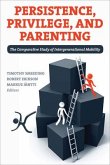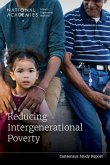Does economic inequality in one generation lead to inequality of opportunity in the next? In From Parents to Children, an esteemed international group of scholars investigates this question using data from ten countries with differing levels of inequality. The book compares whether and how parents' resources transmit advantage to their children at different stages of development and sheds light on the structural differences among countries that may influence intergenerational mobility. How and why is economic mobility higher in some countries than in others? The contributors find that inequality in mobility-relevant skills emerges early in childhood in all of the countries studied. Bruce Bradbury and his coauthors focus on learning readiness among young children and show that as early as age five, large disparities in cognitive and other mobility-relevant skills develop between low- and high-income kids, particularly in the United States and the United Kingdom. Such disparities may be mitigated by investments in early childhood education, as Christelle Dumas and Arnaud Lefranc demonstrate. They find that universal pre-school education in France lessens the negative effect of low parental SES and gives low-income children a greater shot at social mobility. Katherine Magnuson, Jane Waldfogel, and Elizabeth Washbrook find that income-based gaps in cognitive achievement in the United States and the United Kingdom widen as children reach adolescence. Robert Haveman and his coauthors show that the effect of parental income on test scores increases as children age; and in both the United States and Canada, having parents with a higher income betters the chances that a child will enroll in college. As economic inequality in the United States continues to rise, the national policy conversation will not only need to address the devastating effects of rising inequality in this generation but also the potential consequences of the decline in mobility from one generation to the next. Drawing on unparalleled international datasets, From Parents to Children provides an important first step.
Hinweis: Dieser Artikel kann nur an eine deutsche Lieferadresse ausgeliefert werden.
Hinweis: Dieser Artikel kann nur an eine deutsche Lieferadresse ausgeliefert werden.








